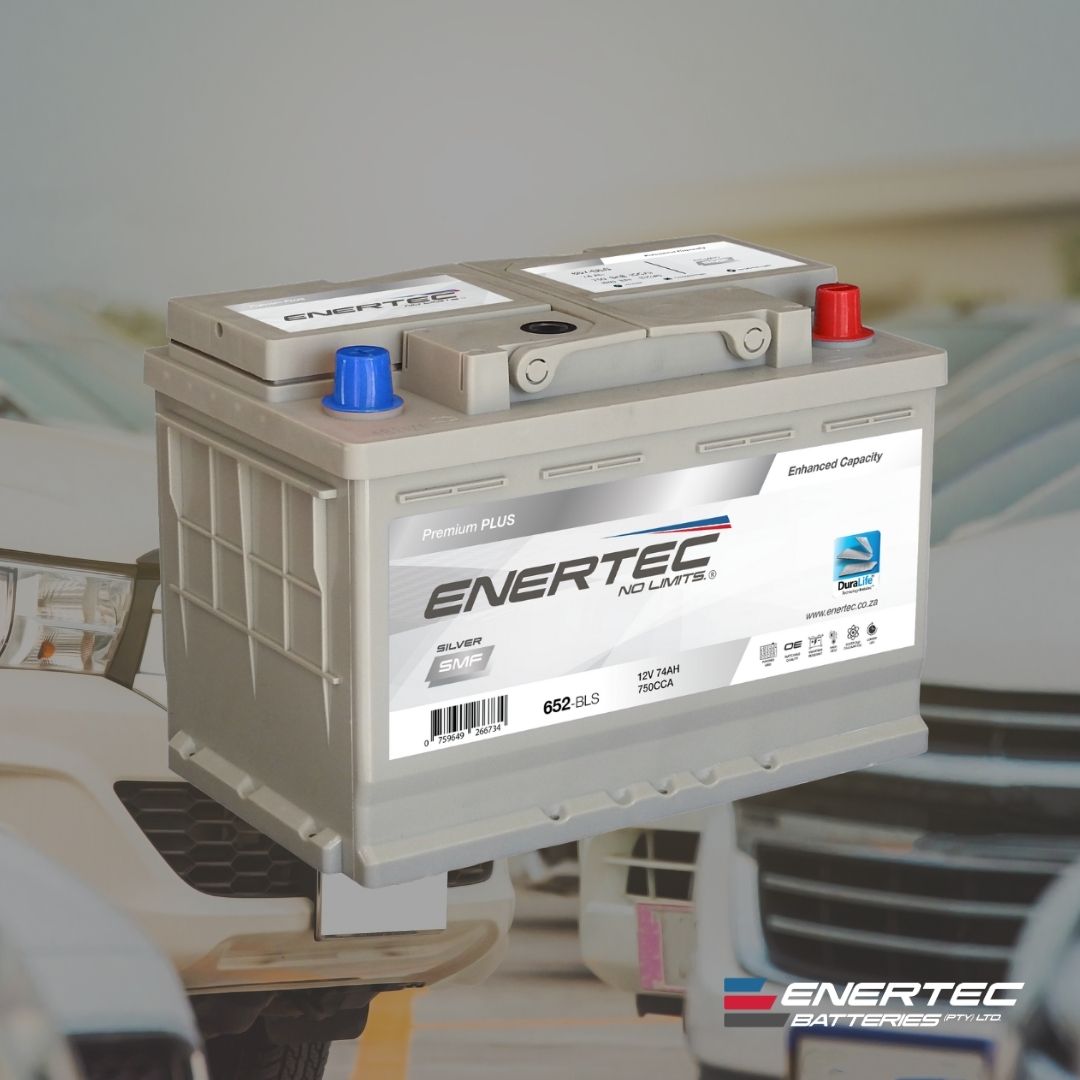2024-09-02 17:37:09
Everything You Need to Know About Lithium-Ion Batteries
Lithium-ion (Li-ion) batteries have become the go-to power source for a wide range of applications, from smartphones and laptops to electric vehicles and industrial machinery. Their popularity stems from their high energy density, long life cycle, and relatively low maintenance requirements compared to other battery types.
In this article, we’ll explore everything you need to know about lithium-ion batteries, including their advantages, disadvantages, applications, safety considerations, and future developments.
What Are Lithium-Ion Batteries?
Lithium-ion batteries are rechargeable batteries in which lithium ions move from the negative electrode to the positive electrode during discharge and back when charging. They consist of three main components: the anode (usually made of graphite), the cathode (typically made of a lithium metal oxide), and the electrolyte (a lithium salt in a solvent).
How Do Lithium-Ion Batteries Work?
Before we can discuss how a lithium-ion battery works, we first need to look at the different components of a lithium-ion battery.
Components of a Lithium-Ion Battery
- Anode: Typically made of graphite, the anode stores lithium ions during charging.
- Cathode: Usually composed of a lithium metal oxide (like lithium cobalt oxide or lithium iron phosphate), the cathode is where the lithium ions migrate during discharge.
- Electrolyte: This is a liquid or gel substance that facilitates the movement of lithium ions between the anode and cathode.
- Separator: A porous material that physically separates the anode and cathode while allowing lithium ions to pass through.
How the battery works:
The basic working principle of a lithium-ion battery revolves around the movement of lithium ions between the anode and cathode. When the battery is charging, lithium ions are driven from the cathode to the anode through the electrolyte. During discharge, these ions flow back to the cathode, generating an electric current that powers the connected device.
Charging Process:
When a lithium-ion battery is charged, an external power source applies a voltage that forces lithium ions to move from the cathode through the electrolyte and into the anode.
Simultaneously, electrons flow through the external circuit from the cathode to the anode, balancing the charge and effectively storing energy.
Discharging Process:
When the battery is discharging (providing power), the process reverses. Lithium ions move from the anode back to the cathode through the electrolyte.
Electrons flow from the anode to the cathode through the external circuit, providing electrical energy to the connected device.
Lithium-ion batteries have a high energy density, meaning they can store a large amount of energy in a relatively small volume. This is one of the reasons they are preferred in portable electronics and electric vehicles. Additionally, they have a low self-discharge rate, meaning they retain their charge for longer periods when not in use.
Advantages of Lithium-Ion Batteries
- High Energy Density: One of the most significant advantages of lithium-ion batteries is their high energy density. This means they can store more energy per unit of weight or volume, making them ideal for portable electronic devices and electric vehicles.
- Longer Life Cycle: Lithium-ion batteries typically offer a longer life cycle than other rechargeable batteries. They can endure hundreds to thousands of charge-discharge cycles before their capacity significantly diminishes.
- Low Self-Discharge Rate: Compared to other battery types, lithium-ion batteries have a much lower self-discharge rate, meaning they retain their charge for longer periods when not in use.
- No Memory Effect: Lithium-ion batteries do not suffer from the "memory effect," a phenomenon where batteries lose their maximum energy capacity when repeatedly recharged after being partially discharged. This allows users to recharge them at any time without compromising performance.
- Lightweight: Lithium-ion batteries are lighter than many other rechargeable batteries, which contributes to the overall reduction in weight of the devices they power.
Disadvantages of Lithium-Ion Batteries
- Cost: One of the primary disadvantages of lithium-ion batteries is their cost. They are more expensive to produce than other types of rechargeable batteries, which can drive up the price of the devices they power.
- Thermal Runaway: Lithium-ion batteries can experience thermal runaway, where rising temperatures trigger a reaction that may lead to fire or explosion. This risk is higher in poorly made or damaged batteries, but modern packs, especially in electric vehicles, include safety features like thermal management systems to mitigate this concern.
- Degradation Over Time: While lithium-ion batteries have a long life cycle, they do degrade over time. Factors such as high temperatures, overcharging, and deep discharging can accelerate this degradation.
- Environmental Impact: The production and disposal of lithium-ion batteries have environmental implications. Mining lithium and other metals used in the batteries can lead to environmental degradation, and improper disposal of used batteries can lead to toxic materials leaching into the environment
Applications of Lithium-Ion Batteries
Lithium-ion batteries are used across various industries and applications, including:
- Consumer Electronics: Smartphones, laptops, tablets, and other portable electronic devices rely heavily on lithium-ion batteries due to their compact size and high energy density.
- Electric Vehicles (EVs): The automotive industry has embraced lithium-ion batteries for electric and hybrid vehicles because of their ability to store large amounts of energy and deliver it quickly when needed.
- Renewable Energy Storage: Lithium-ion batteries are increasingly used for energy storage in solar and wind power systems, helping to smooth out supply fluctuations and provide backup power.
- Industrial Equipment: Many types of industrial machinery, including forklifts, drones, and medical devices, use lithium-ion batteries due to their efficiency and reliability.
- Grid Storage: Large-scale lithium-ion battery systems are used for grid storage to help balance supply and demand, particularly as renewable energy sources become more prevalent.
Safety Considerations
While lithium-ion batteries are generally safe, there are important safety considerations to keep in mind:
- Avoid Overcharging: Overcharging a lithium-ion battery can cause excessive heat buildup, increasing the risk of thermal runaway. Most modern devices have built-in protections to prevent overcharging, but it’s still important to use the correct charger.
- Temperature Management: Extreme temperatures can adversely affect the performance and lifespan of lithium-ion batteries. It's important to keep them within their recommended operating temperature range and avoid exposure to extreme heat or cold.
- Proper Disposal: Lithium-ion batteries should be disposed of properly to avoid environmental damage. Many regions have specific regulations for battery disposal, and recycling programs are available to recover valuable materials.
- Use Approved Chargers: Using an incorrect or damaged charger can pose a risk to the battery and the device. Always use manufacturer-approved chargers and cables.
The Future of Lithium-Ion Batteries
The future of lithium-ion batteries looks promising, with ongoing research focused on improving their energy density, safety, and sustainability. Some of the key developments on the horizon include:
- Solid-State Lithium-Ion Batteries: Solid-state batteries use a solid electrolyte instead of a liquid one, which could improve safety by reducing the risk of leakage and thermal runaway. They also have the potential to offer higher energy density and longer life cycles
- Recycling Innovations: As demand for lithium-ion batteries grows, so does the need for effective recycling methods. Researchers are developing new techniques to recover valuable materials from used batteries more efficiently and with less environmental impact.
- Second-Life Applications: Even after their capacity has degraded beyond use in high-demand applications like electric vehicles, lithium-ion batteries can still be used in less demanding environments, such as home energy storage, extending their overall lifespan.
- Alternative Chemistries: Researchers are exploring alternative materials and chemistries to improve lithium-ion batteries' performance and reduce their reliance on scarce resources like cobalt. This could lead to cheaper and more sustainable battery technologies in the future.
Common Questions About Lithium-Ion Batteries Answered
Do lithium-ion batteries keep memory?
No, lithium-ion batteries do not have a memory effect. Unlike older battery technologies like nickel-cadmium (NiCd), lithium-ion batteries can be recharged at any time without experiencing a reduction in their maximum energy capacity.
Why are lithium-ion batteries more expensive than other batteries?
The cost of lithium-ion batteries is higher due to the expensive materials used in their production, such as lithium, cobalt, and nickel. Additionally, the manufacturing process is complex and requires stringent safety measures, all of which contribute to the overall cost.
Is there a difference between lithium batteries and lithium-ion batteries?
Yes, there is a difference. Lithium batteries are primary (non-rechargeable) batteries that use lithium metal as an anode, while lithium-ion batteries are rechargeable and use lithium compounds in the cathode.
How to charge a lithium-ion battery correctly?
To charge a lithium-ion battery correctly, use a charger that matches the battery’s specifications. Avoid overcharging and exposure to extreme temperatures. It's best to charge the battery when it reaches around 20-30% capacity and avoid letting it discharge completely.
Can lithium-ion batteries be recycled?
Yes, lithium-ion batteries can and should be recycled. Recycling helps recover valuable materials like lithium, cobalt, and nickel and reduces the environmental impact of battery disposal.
Can lithium-ion batteries be overcharged?
Modern lithium-ion batteries are equipped with protection circuits that prevent overcharging. However, using a charger that is not designed for the battery or a faulty charger can lead to overcharging, which may cause overheating or damage.
What are lithium-ion batteries made of?
Lithium-ion batteries typically consist of a graphite anode, a lithium metal oxide cathode (such as lithium cobalt oxide or lithium iron phosphate), and an electrolyte composed of a lithium salt dissolved in an organic solvent.
Enertec’s Range of Lithium-Ion Batteries
At Enertec, we offer a comprehensive range of high-performance lithium-ion batteries tailored to meet the diverse needs of our customers. Our lithium-ion batteries are designed for various applications, ensuring reliable power and performance in every scenario.
- Motorcycle Batteries: The motorcycle lithium-ion batteries are designed for durability and high power output. They offer quick starts and reliable performance, ensuring a smooth and dependable ride.
- Household Batteries: Our household lithium-ion batteries are perfect for home energy storage solutions. They provide reliable backup power and efficient energy use, optimising your home’s energy needs.
- Security Batteries: For critical security systems, Enertec’s lithium-ion batteries ensure an uninterrupted power supply. They are designed to provide long-lasting performance, keeping your security systems operational when you need them most.
- Golf Cart Batteries: Enertec’s lithium-ion batteries for golf trolleys offer lightweight and long-lasting power, enhancing your golfing experience with reliable performance and extended usage.
- Marine & Leisure Batteries: Designed for the rigours of marine environments, our marine and leisure lithium-ion batteries provide dependable power for boats, RVs, and other recreational vehicles, ensuring you have energy when and where you need it.
- Industrial Batteries: For heavy-duty applications, our industrial lithium-ion batteries offer robust energy solutions. These batteries are perfect for forklifts, drones, and other industrial machinery, delivering long-lasting power with minimal maintenance.
- Renewable Energy Storage Solutions: Enertec’s lithium-ion batteries for renewable energy systems provide efficient energy storage to optimise the use of solar and wind power. These batteries ensure a steady power supply, even when the sun isn’t shining or the wind isn’t blowing.
Enertec’s lithium-ion batteries are built to the highest standards, ensuring safety, reliability, and performance. Whether you’re looking for batteries for personal, commercial, or industrial use, Enertec has the right solution for you.
Conclusion
Lithium-ion batteries have revolutionised the way we power our world, providing reliable energy storage for everything from smartphones to electric vehicles. While they come with certain challenges, their benefits far outweigh the disadvantages, and ongoing innovations continue to improve their performance, safety, and sustainability. As the demand for portable and renewable energy solutions grows, lithium-ion batteries will undoubtedly play a crucial role in our energy future.



